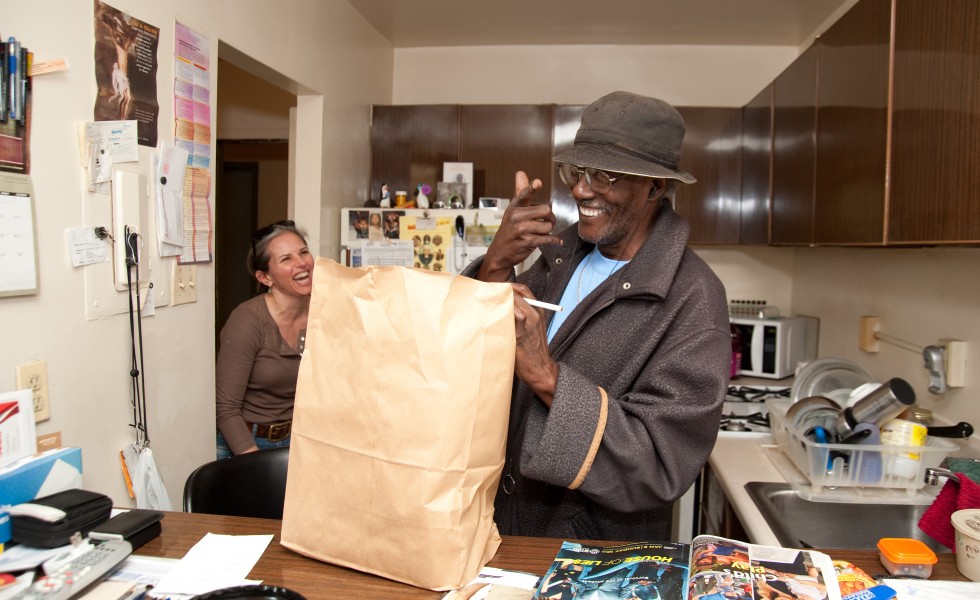Meals & Nutrition

Multiple DC public and private agencies cite an increased demand for senior food assistance in the face of flat or declining resources of lower and middle class citizens, coupled with rising food prices. Food security is elusive for the 14.5 percent of the District’s senior population living below the federal poverty line and for many more in the next higher income tiers. Nearly 10 percent of all District seniors, regardless of their income level, were worried about food running out sometime in the preceding year, according to the 2010 U.S. Census report.
Home-Delivered Meal Program
The Home-Delivered Meal Program is administered through the D.C. Office on Aging and funded by Title III (Grants for State and Community Programs on Aging) of the Older American Act (OAA), The Elderly Nutrition Program provides congregate and home-delivered meals to D.C. residents at or above 60 years of age, regardless of income. Following a large boost of $1.9 million in local funding for FY2014 and the successful annualization of the funds for 2015, this program can be highly effective in bolstering the health and well-being of frail seniors. Unfortunately, even with the large infusion of funds in FY14, there is again a waiting list for home delivered meals and, according to the Office on Aging, an additional $1.7 million is needed in this fiscal year to meet the demand for current and new recipients of the service. Any significant increase in meals must also be accompanied by increases in program staff.
SNAP
The Supplemental Nutrition Assistance Program (SNAP), formerly known as food stamps, is widely considered the nation’s number one defense against hunger. In Washington, D.C., more than 10,000 seniors benefit from SNAP, but thousands more are eligible. With an average monthly benefit of $119 for seniors residing alone, SNAP is a particularly effective tool for addressing senior hunger. However, the District ranked 47th when compared to the 50 states in reaching older low-income adults with SNAPThere is compelling need to broaden its use among seniors through outreach, advocacy, public education, and the adoption of policies that expand program access to thousands of additional seniors. The City Council included $1.3 million in the FY15 budget to provide a local supplement of $15 to those persons eligible for SNAP at the lowest level. Outreach and smooth implementation of this local supplement are essential to reach more people in need.
Goals and Objectives for FY 2015
Goal: DC seniors will not lack for sufficient and healthful food, regardless of their financial or health status.
Objectives:
- Ensure prompt, smooth and widespread implementation of the $15 monthly supplement to the FY 15 minimum federal SNAP benefits.
- Create a permanent interface between the Department of Human Services (DHS) and DCOA, dedicated to ensuring that the SNAP enrollment process and EBT card distribution is smooth for seniors and that DHS-funded food programs reach all eligible seniors. Note: the current DHS-funded position at DCOA is vacant.
- Ensure that ADRC food programs in all wards have the capacity to meet standards for congregate and home-delivered meals and nutrition supplements, including effective assessments and the provision of nutrition counseling and monitoring for highest risk clients.
- Improve the nutritional value of congregate and home-delivered meals.
- SAC research on the potential of a DC Healthy Seniors Act, similar to the D.C. Healthy Schools and Healthy Tots legislation, to improve standards and attention to senior nutrition throughout DC government and private agencies.
 Senior Advisory Coalition
Senior Advisory Coalition
Recent Comments